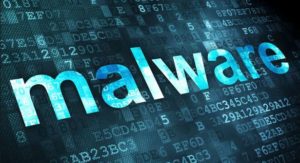9 Tips for Personal and Professional Security
Despite great advances in security measures, cyber attacks continue to plague institutions, businesses, and consumers alike. Malicious hackers seek to destroy or obtain personal information and crucial documentation, often resulting in a legal nightmare for those impacted. Fortunately, there are preventative measures which can help keep predators at bay.
1. Secure Your WiFi
One of the first rules of personal or commercial WiFi usage is to keep the credentials as secure as possible. For most, this means setting up a password protected WiFi system so that you can individually control who has access to the service and who does not. Without a password, anyone in the area may be able to connect to and infect your network.
For additional coverage, make your WiFi invisible to the public. Doing so allows only those who know both the name and password to be able to see, much less access, the network.
2. Use a Firewall
Installing a firewall offers some of the best protection against cyber attacks. Firewalls act as physical barricades that protect your server from outside interference. Understanding how to use a firewall correctly can drastically reduce, if not entirely eliminate, vulnerability against cyber attacks.
3. Vary Your Passwords
If you’ve ever created an account for any website or system, you’ve likely been told that you should not use the same password for each account. Those who do so are significantly more susceptible to malicious interference from hackers, who often target individuals with little or no knowledge about technology and account security.
4. Limit Systems Access
The more people with direct access to your systems, the higher the chances that you will experience a security breach of some sort. Anyone who can access your server or computers can upload viruses and other malware that destroys or steals vital documentation and information.
5. Train Employees
Many businesses often do not train employees on how to maintain network security, and even fewer arm employees with the knowledge of what a cyber attack is. Uninformed employees are more vulnerable to attacks such as phishing scams, which often take the form of official-looking emails from the company, fellow colleagues, or potential clients. Opening these emails or providing private information affords unwarranted access to the network and its databases.
Organizations such as INE offer B2B Cyber Security Awareness training which can be deployed to entire teams to train them on how to identify potentially malicious emails.
6. Maintain Individual Employee Accounts
In order to streamline the distribution of network credentials, many businesses use one standard login for all of their employees or guests. While this may make things easier in the short term, denying individual access gives hackers the leg up, as they can masquerade as an employee or guest. Offering each individual the opportunity to create their own account makes it harder for cyber attackers to weasel their way into the system.
7. Offer Administrative Access
Just as you should maintain individual and limited access to your network, it’s advisable to provide access to more protected aspects of your systems to specific employees only. Setting up administrative accounts minimizes the chances that a cyber attacker will be able to break through your protective barriers.
8. Update All Systems
Those system update notifications may be pesky, but they serve a vital purpose when it comes to protecting your network against security threats. Newer updates provide greater accessibility as well as more current options for securing your network and information systems.
The easiest way to manage system updates is to allow them to occur automatically. Most computers and software systems offer the option to install updates whenever they become available so that you don’t have to keep track of updates on your own.
9. Keep Backups Current
Like update notifications, backup reminders encourage you to secure your information by transferring a copy of it to an external hard drive or server. Without backups, a hacker can break into your system and wipe your network clean of critical data, leaving you with no option but to start over from scratch. Having a backup, however, allows you to get back to business as quickly as possible and focus instead on minimizing the damages of any security breaches.
While it’s impossible to entirely eliminate the existence of hackers, you can greatly reduce your chances of being targeted by knowing how to prevent cyber attacks. Most of these measures are easy to implement and keep hackers from stealing time, revenue, and business from you or your company.








